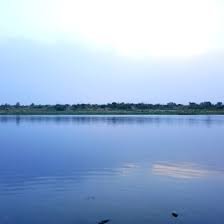As Delhi continues to reimagine its relationship with the Yamuna River, the Delhi Development Authority (DDA) has unveiled plans to add three distinctive theme-based cafés along the scenic Yamuna riverfront. Part of the broader Yamuna Riverfront Redevelopment Project, these cafés are designed to blend leisure with sustainability — offering not just a place to sip coffee, but to immerse oneself in culture, nature, and wellness.
What Are the New Yamuna River Cafés?
DDA is inviting private players to develop and operate three cafés at strategic riverfront locations in the capital. These aren’t your average roadside eateries — they are purpose-built, thematic experiences that align with Delhi’s urban revival and riverfront engagement efforts.
Proposed Locations and Themes
- Qudsia Ghat – Civilization and Cultural Heritage Theme
- Will reflect the historical and civilizational significance of the Yamuna in Indian culture.
- Expected to feature elements of Delhi’s Mughal and colonial past.
- Geeta Colony – Nature and Ecology Theme
- Emphasis on biodiversity, river ecology, and green living.
- Likely to have open decks, native plants, and eco-design features.
- Gandhi Nagar – Sports and Wellness Theme
- Positioned to attract joggers, cyclists, and fitness enthusiasts.
- Concept may include healthy food options, yoga spaces, or outdoor activity zones.
Why This Move Matters
“The cafés are not just commercial setups — they are part of a cultural and ecological awakening along the Yamuna,” said a senior DDA official involved with the riverfront redevelopment.
With Phase 1 of the Yamuna Riverfront Development Project nearing completion (spanning from Old Railway Bridge to ITO Barrage), DDA aims to bring people back to the river. The cafés are designed to:
- Enhance public engagement
- Support eco-tourism
- Provide safe, vibrant social spaces
Each café will cover approximately 250 square meters of built-up area, with provision for open-air seating overlooking the river.
Who Will Build and Run Them?
The DDA is currently seeking proposals through a design-and-build public competition model. Private firms with expertise in hospitality and sustainable architecture are encouraged to submit:
- Conceptual designs reflecting the assigned theme
- Business plans for a 9-year concession period
- Models that balance aesthetics, environmental responsibility, and operational feasibility
Once selected, the winning concessionaire will be responsible for construction, furnishing, and running the café, while sharing revenue with DDA.
A Step Towards a Greener Delhi
The Yamuna cafés aren’t an isolated project. They form part of a series of interventions including:
- Landscaped walking and cycling paths
- Urban forests and biodiversity pockets
- Interactive public spaces and art installations
Officials believe the cafés will help anchor the river in Delhi’s social life once again — making it a hub for both reflection and recreation.
“This is about reclaiming the river as a public space, not just a waterway,” noted one urban planner familiar with the project.
When Can We Expect the Cafés?
While there’s no confirmed launch date yet, the selection process for concessionaires is expected to be completed in the coming months. Construction would begin shortly after, with a tentative opening expected in late 2025 or early 2026, depending on the monsoon cycle and regulatory approvals.
Why Locals and Tourists Should Watch This Space
For Delhi residents, these cafés offer a long-overdue recreational alternative. For tourists, they promise a unique opportunity to witness urban India embracing sustainability, culture, and public space revival.
Whether you’re a photographer seeking the perfect riverfront sunset, a student looking for a peaceful study spot, or a morning jogger in need of fresh juice post-run — these upcoming cafés may soon become your new favorite escape within the city.
FAQs
What are the new DDA cafés planned by the Yamuna River?
The Delhi Development Authority (DDA) is setting up three theme-based cafés along the Yamuna riverfront. These include a literary café, an art and culture café, and a health and wellness café, as part of a larger riverfront beautification and community engagement project.
Where will the new riverfront cafés be located?
All three cafés will be located at the DDA’s Yamuna Riverfront site in Qudsiya Ghat, near the Kashmere Gate area of Delhi. This site has been undergoing redevelopment to encourage public interaction with the river.
What is the purpose of these themed cafés?
The cafés aim to attract people of different interests and promote healthier public spaces. The literary café will host book readings and discussions, the art café will feature rotating exhibitions, and the wellness café will complement fitness activities at the site like open-air yoga.
Will the cafés be open to the public?
Yes, the cafés will be open to the general public. The idea is to create engaging, inclusive spaces where visitors can enjoy cultural, literary, and wellness experiences while spending time by the Yamuna.
What other developments are happening at the Yamuna Riverfront?
In addition to the cafés, the DDA has developed green walking paths, cycle tracks, yoga decks, and an amphitheatre at the site. The project is a major push toward creating more eco-friendly and accessible public spaces in Delhi.
When are the cafés expected to open?
While the DDA has not yet given a confirmed launch date, preparations and development are already underway. The cafés are expected to open to the public in phases by late 2025.
Are there any environmental concerns about cafés near the Yamuna?
The cafés are part of a carefully planned river rejuvenation initiative, and sustainability measures are being integrated, including non-invasive architecture, use of eco-friendly materials, and wastewater management systems to avoid harming the river ecosystem.
Who will manage and run these cafés?
The DDA is expected to partner with private vendors or nonprofit organizations to operate the cafés, depending on the final tendering and operational strategy. Each café will reflect its theme through curated programming and food offerings.

